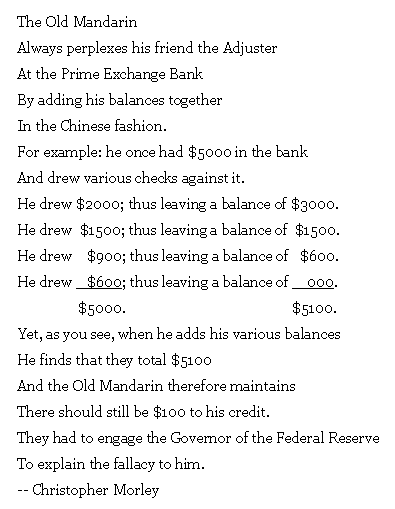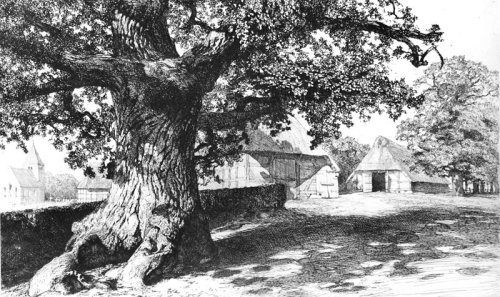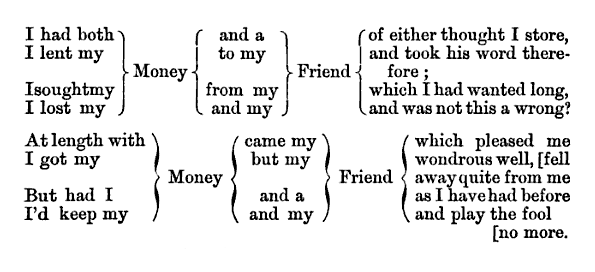The man who invented the women’s waists that button down behind,
And the man who invented the cans with keys and the strips that will never wind,
Were put to sea in a leaky boat and with never a bite to eat
But a couple of dozen of patent cans in which was their only meat.
And they sailed and sailed o’er the ocean wide and never they had a taste
Of aught to eat, for the cans stayed shut, and a peek-a-boo shirtwaist
Was all they had to bale the brine that came in the leaky boat;
And their tongues were thick and their throats were dry, and they barely kept afloat.
They came at last to an island fair, and a man stood on the shore,
So they flew a signal of distress and their hopes rose high once more,
And they called to him to fetch a boat, for their craft was sinking fast,
And a couple of hours at best they knew was all their boat would last.
So he called to them a cheery call and he said he would make haste,
But first he must go back to his wife and button up her waist,
Which would only take him an hour or so and then he would fetch a boat.
And the man who invented the backstairs waist, he groaned in his swollen throat.
The hours passed by on leaden wings and they saw another man
In the window of a bungalow, and he held a tin meat can
In his bleeding hands, and they called to him, not once but twice and thrice,
And he said: “Just wait till I open this and I’ll be there in a trice!”
And the man who invented the patent cans he knew what the promise meant,
So he leaped in air with a horrid cry and into the sea he went,
And the bubbles rose where he sank and sank and a groan choked in the throat
Of the man who invented the backstairs waist and he sank with the leaky boat!
— J.W. Foley, in Carolyn Wells, ed., Such Nonsense!: An Anthology, 1918



